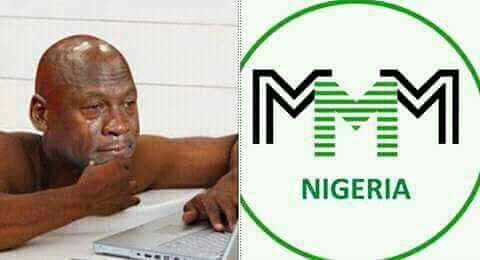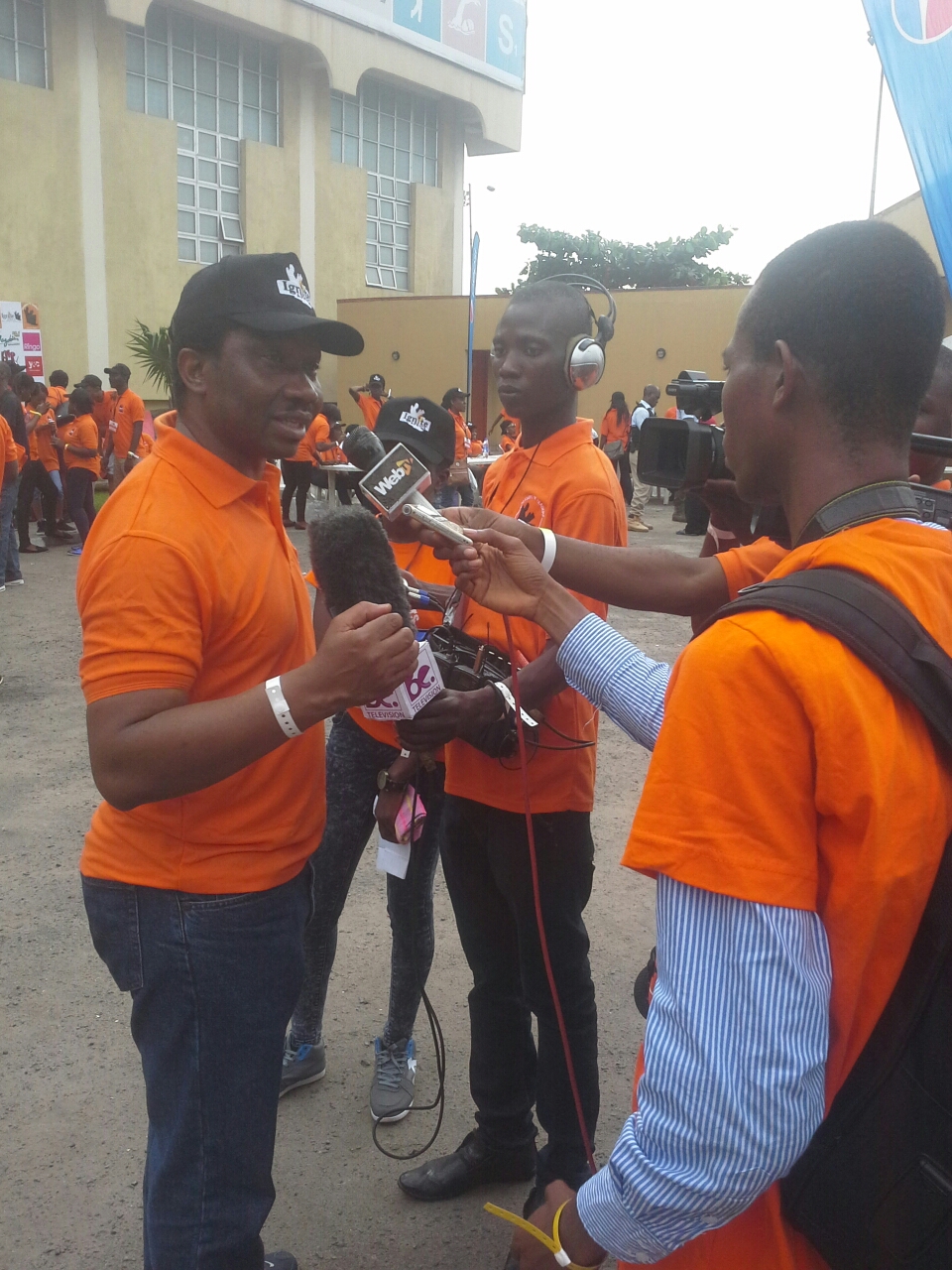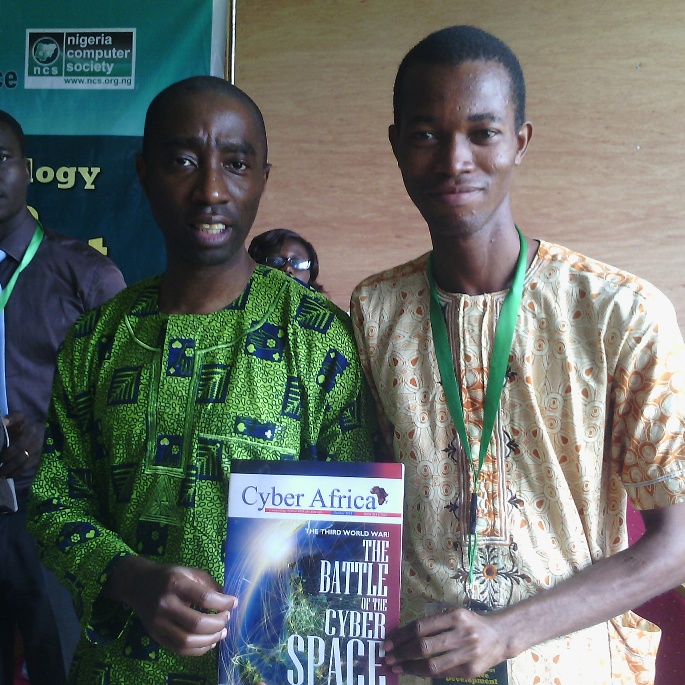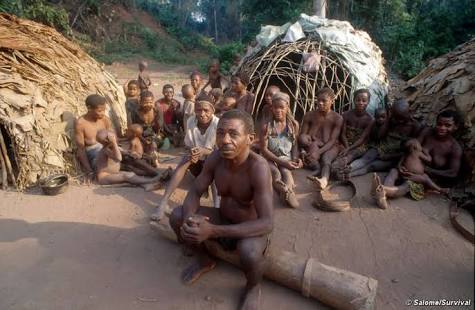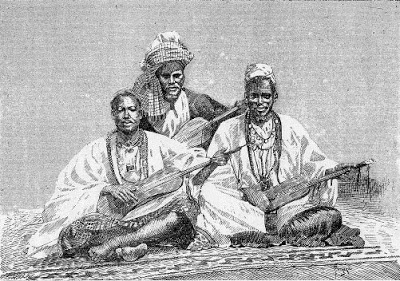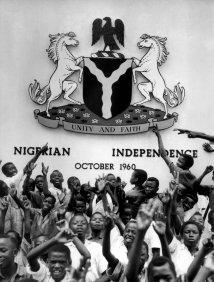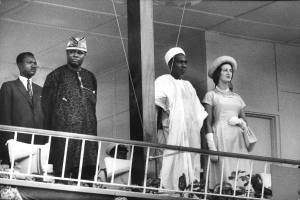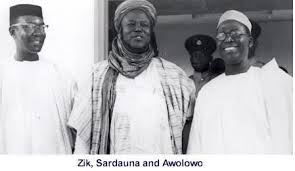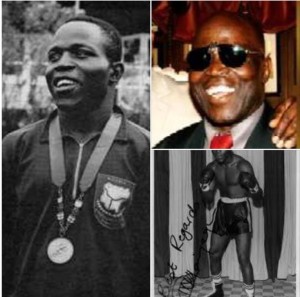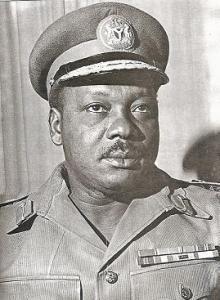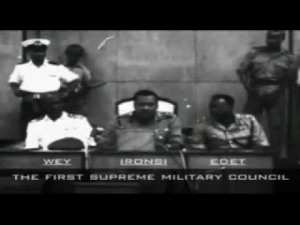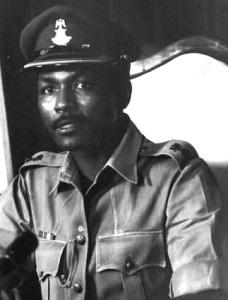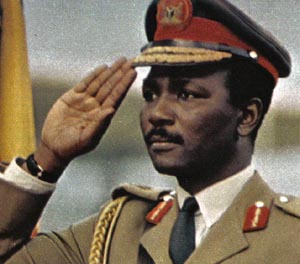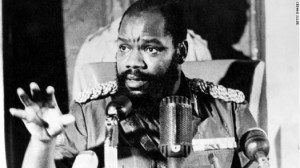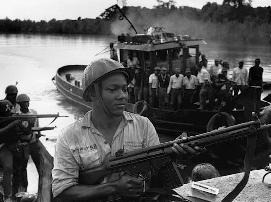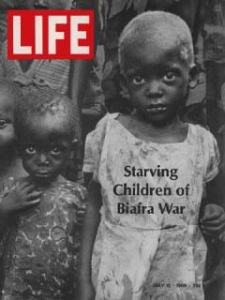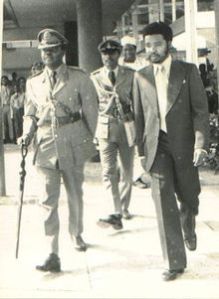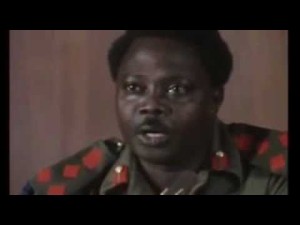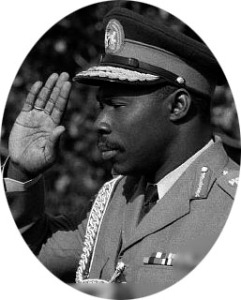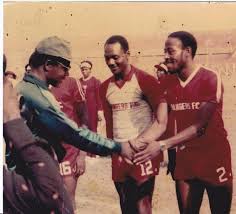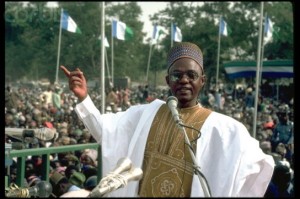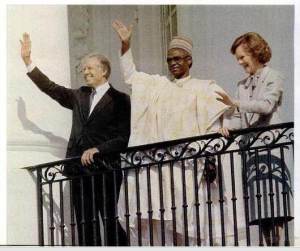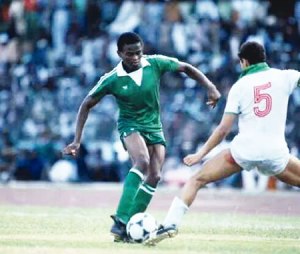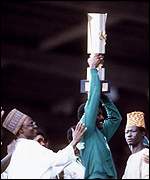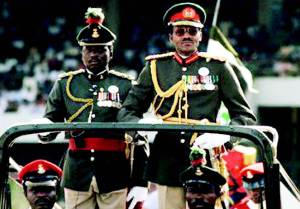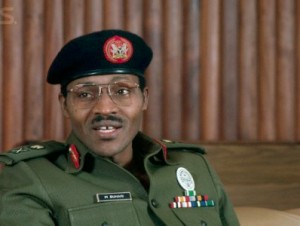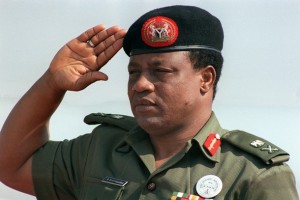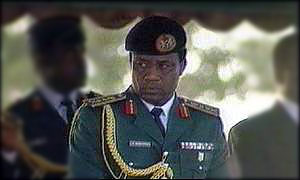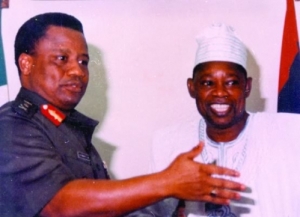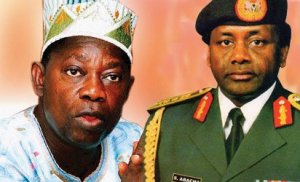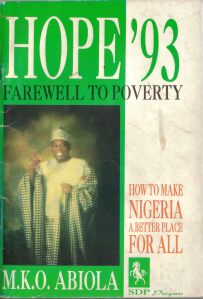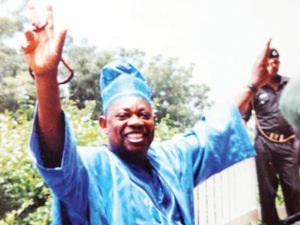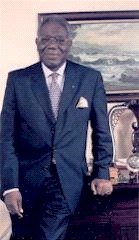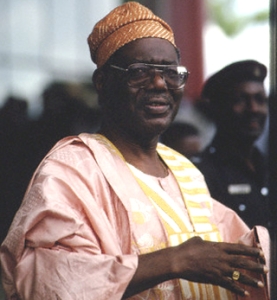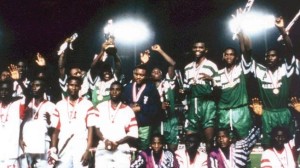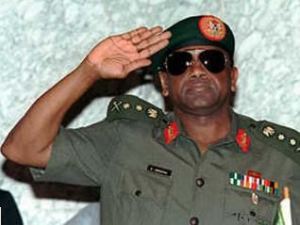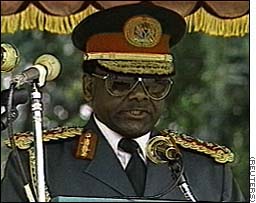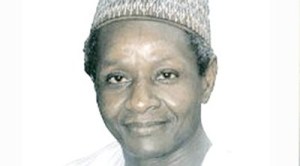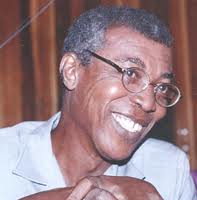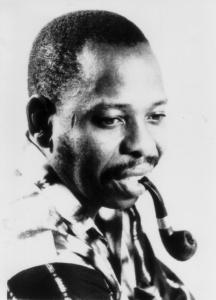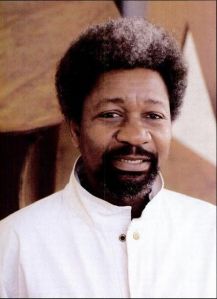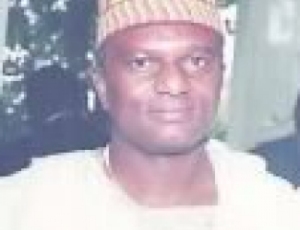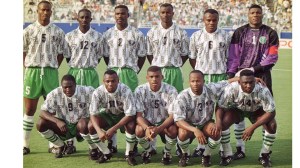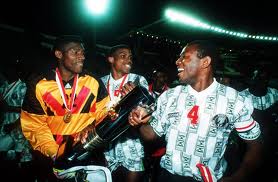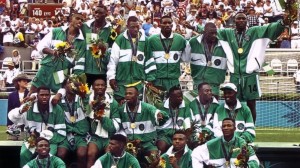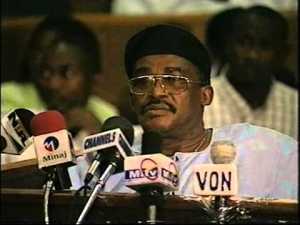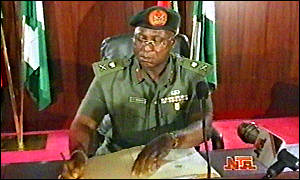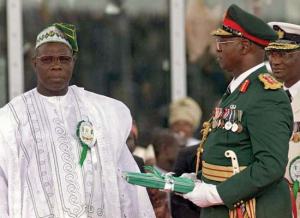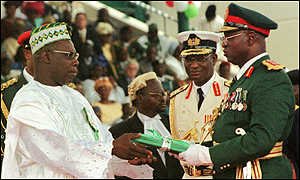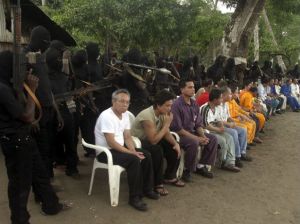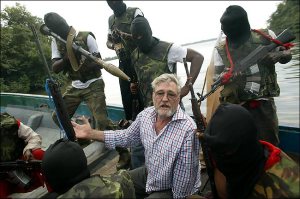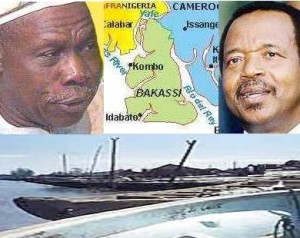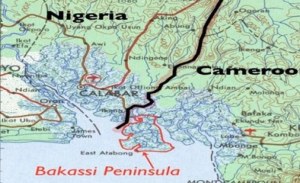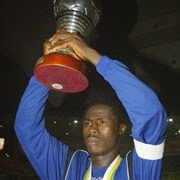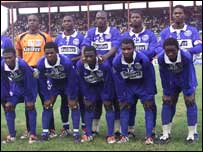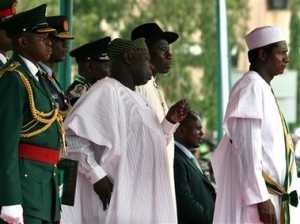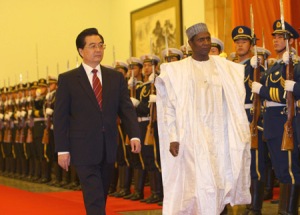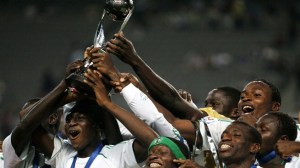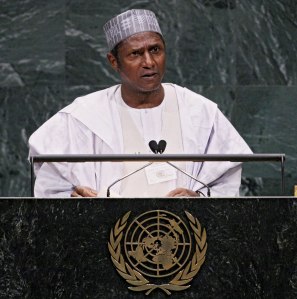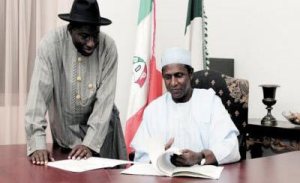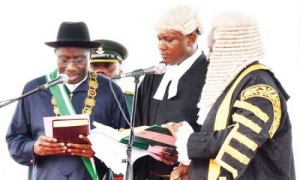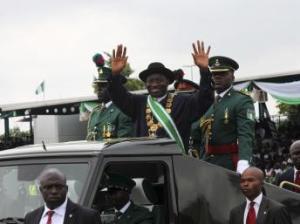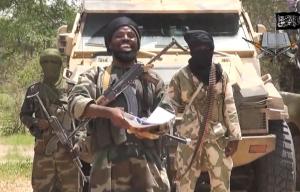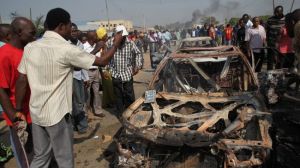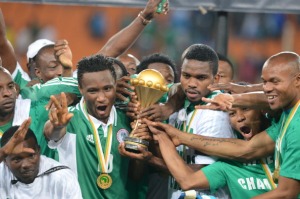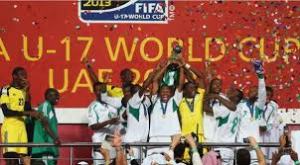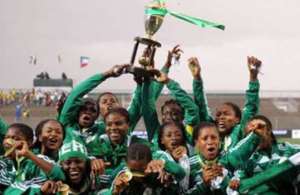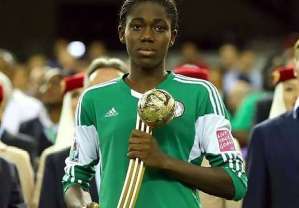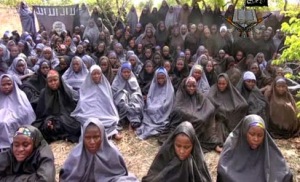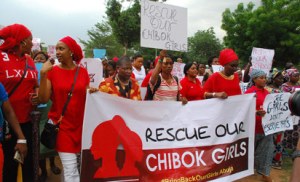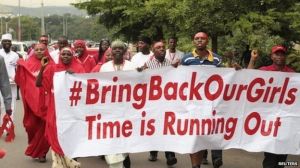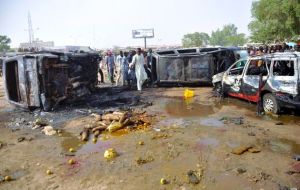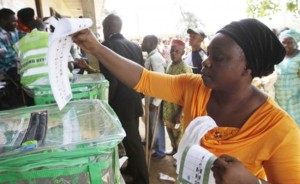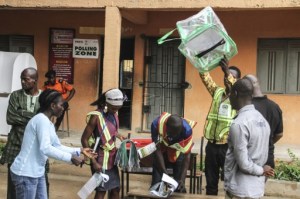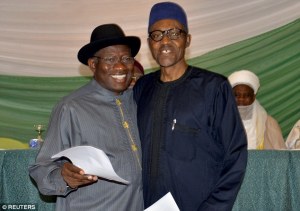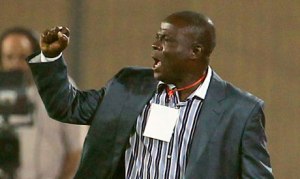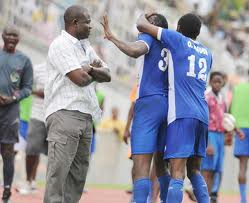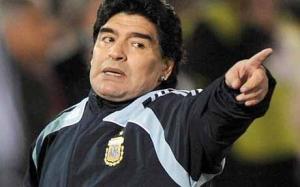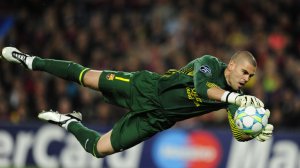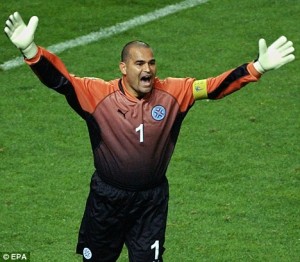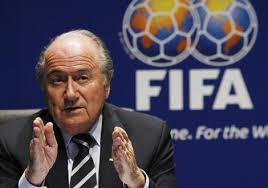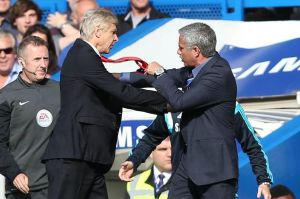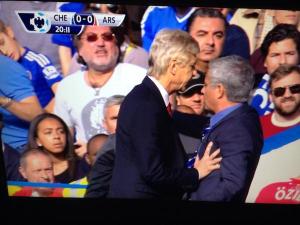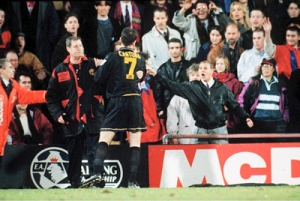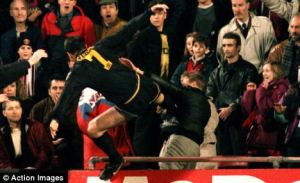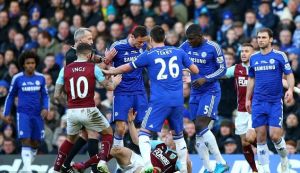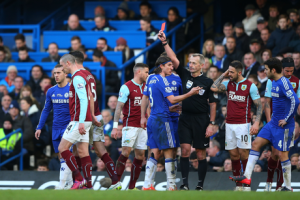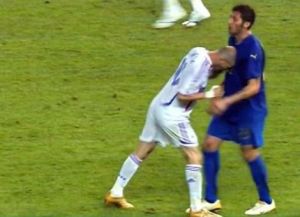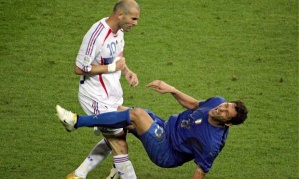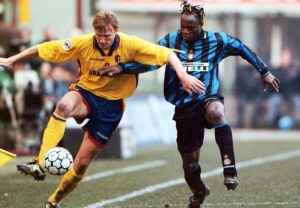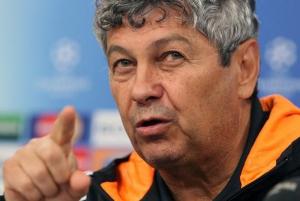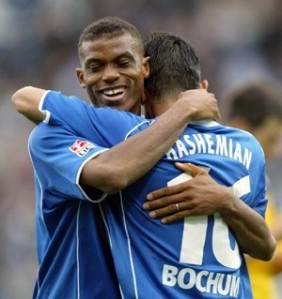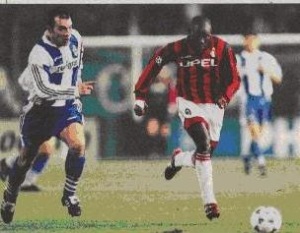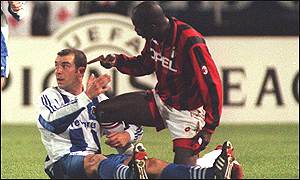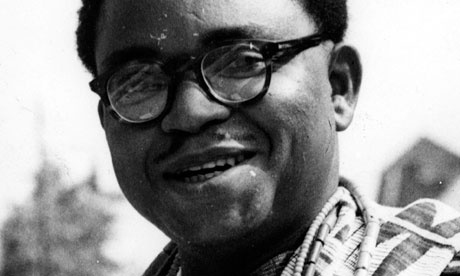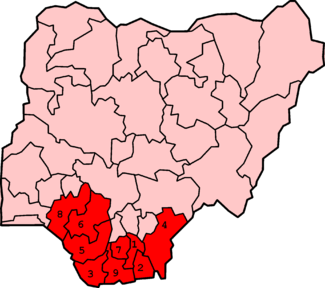In some hours time, 2016 will surely give way to 2017. 2016 obviously has been an eventful year for Nigerian history with the good, the bad and the ugly as it marks the first year in our government transition from former ruling People’s Democratic Party (PDP) to All Progressive Congress (APC) under the leadership of President Muhammadu Buhari.
Major events that shaped Nigeian history in 2016 include among others: President’s New Year speech, political party defection, Governorship Election in some states, Judges Raid by DSS, the suspension of “Whistle Blower” Jubrin, registration of some political parties by INEC, Economic Recession, MMM, Sports ups and downs and Death Of Prominent Nigerians. In no particular order I present the Top 10 Events that Mirrored Nigeria in 2016. Enjoy it!
1. President’s New Year speech
Nigeria’s political year in 2016 started with a Presidential address on the 1st January where President Muhammadu Buhari in the spirit of his campaign promises, assured Nigerians of the commitment of his government to alleviate the problems confronting the nation on various fronts.
“The effective and efficient implementation of our 2016 budget proposals will address many of the socio-economic issues that are of current concern to our people. One area in which Nigerians, especially those in the northeast, have already begun to experience major change is in the war on terror” the President said.
On January 27, Governor Yahaya Bello of Kogi State was sworn in as governor of the state after he was declared winner of the December 5 rerun election in the state.
Bello replaced Prince Abubakar Audu as the governorship candidate of All Progressives Congress (APC) after Audu died. Audu who was at the verge of winning the November 23 election, died before the result of the election which was declared inconclusive was announced.
2. Political Party Defection
In September, Joshua Dariye, former governor of Plateau State also dump the former ruling party for APC. Dariye attributed his decision to the protracted crisis at the national level of the party. Apart from Dariye, the former governor of Abia State, Orji Uzor Kalu also dumped Progressive People Alliance (PPA) and joined APC.
Also Abdullahi Idris, former Minister of Transport and some chieftains of the People’ Democratic Party (PDP) in Gombe State defected to the All Progressives Congress (APC) in November. Those that defected along with Idris were former Deputy Governor of the state, Mr Lazarus Yoriyo, ex-House of Representative member, Alhaji Saidu Alkali and a former PDP Youth Leader, Alhaji Habu Mu’azu.
Before this time, two members of PDP in the House of Representatives defected to the ruling APC. The members are Hon. Tony Nwoye from Anambra and Hon. Udende Emmanuel from Benue.
3. Governorship election
The year 2016 witnessed conduct of two governorship elections in Edo and Ondo states. While the Edo election conducted on September 28 was won by Godwin Obaseki of All Progressives Congress (APC) that of Ondo was won by Rotimi Akeredolu (SAN) of the same APC. Observers commended INEC for a peaceful conduct of the election and believe that if the commission intensifies more efforts, Nigeria may get a better credible election in 2019.
Despite the commendation, one issue that was raised by observers and stakeholders in the conduct of the two elections was the influence of monetary inducement. The inducement was more pronounced among APC and PDP, the two leading political parties in the country. Election observers want INEC to do everything possible to investigate the matter and prosecute those found guilty.
4. Judges Raid by DSS
Discussing the political activities of 2016 would not be complete without mentioning the raiding of some judges’ house by men of Department of State Security (DSS) in the month of October. DSS explained its decision to raid the home of the judges was informed by report that some politicians gave a large sum of money to those judges involved with the hope of getting favourable judgments.
Those arrested include: Justice John Okoro and Justice Sylvester Nguta of the Supreme Court; Justice Nnamdi Dimgba and Justice Adeniyi Ademola of the Federal High Court, Abuja; Kabiru Auta, FHC, Kano; Muazu Pindiga, FHC, Gombe; and a former Chief Judge of Enugu State, Innocent Umezulike. The raid and arrest generated a lot of controversy in the country.
5. Jibrin ‘The Whistleblower’ Suspended
The House of Representatives in September suspended Abdulmumin Jibrin, a lawmaker from Kano State who was at the centre of the unfolding budget padding scandal, for 180 legislative days. In a motion recommended by House Ethics Committee chairman, Nicholas Ossai, and adopted by the whole House, Mr. Jibrin, a former Chairman of the Appropriation Committee will also not be able to hold any position of responsibility for the span of the current National Assembly.
Mr. Jibrin began stirring what experts described as one Africa’s biggest parliamentary scandals in recent memory on July 21, a day after he was eased out as chairman of the powerful committee by accusing Yakubu Dogara, Speaker of the House of Representatives and some members of padding the 2016 budget for their personal interest.
6. Registration of political parties
INEC in 2016 re-registered some political parties that were deregistered by the commission some years ago.
The parties, according to INEC, are Better Nigeria Progressive Party (BNPP), Democratic Alternative (DA), Masses Movement of Nigeria (MMN), National Action Council (NAC) and National Democratic Liberty Party (NDLP).
Others are Nigeria Elements Progressive Party (NEPP), National Unity Party (NUP), Nigeria People’s Congress (NPC), Peoples Progressive Party (PPP) and Peoples Redemption Party (PRP).
7. Death Of Prominent Nigerians
The year also witnessed the death of some prominent politicians in the country. Prominent among them include:
Ojo Maduekwe
Maduekwe, former Minister of Foreign Affairs and Secretary of PDP Board of Trustees (BoT), died on May 16 at the age of 71.
He was also one time Minister for Culture and Tourism and later Transport. He was also a former PDP National Secretary.
Born on May 6, 1945, he was an Adviser to the Chairman of the Social Democratic Party between 1990 and 1992; Adviser to the Minister of Foreign Affairs from 1993 to 1995. He also participated in the 19994/95 Constitutional Conference.
In 1999, he was appointed Minister of Culture and Tourism by the then President Olusegun Obasanjo and was later appointed Minister of Transport.
He became the President’s Adviser on Legal and Constitutional Affairs as well as served as National Secretary of the PDP, from where he was appointed Minister of Foreign Affairs in 2007, a position he held till 2010.
In June 2012, then President Goodluck Jonathan appointed him as Nigeria’s Ambassador to Canada.
He was recalled alongside other non career envoys after three years of service abroad in July 2015, by President Muhammadu Buhari.
James Ocholi
One the deaths that shook Nigeria in 2016 was the the demise of James Ocholi, who died on
Sunday March 6. Ocholi, a serving Minister of State for Labour and Productivity died in an accident along Kaduna-Abuja Road.
The ghastly accident also claimed the lives of the minister’s wife and son. Late Ocholi, a lawyer by profession was a prominent politician from Kogi State and one of the close allies of President Muhammadu Buhari.
He was a founding member of the defunct Congress for Progressive Change (CPC) and All Progressives Congress (APC).
Tunji Braithwaite
Braithwaite was the founder of the Nigerian Advance Party (NAP) and had contested for the presidency on a few occasions but never realised his political aspiration. He was a delegate to the 2014 National Conference.
He was a pro-democratic activist and anti-corruption crusader was another prominent Nigerian who died this year.
He died on March 28 at the age of 82. The fearless lawyer fought several military governments to stand still during his lifetime.
Umaru Shinkafi
Alhaji Shinkafi, a lawyer turned politician died in London on July 6. Shinkafi, born on born on January 19, 1937, served as Federal Commissioner of Internal Affairs in 1975 and later became the head of the National Security Organisation in 1979.
During the aborted Third Republic, Shinkafi was one of the promoters of the Nigerian National Congress (NNC), a political association formed in 1989 after the disbanding of political groups by the General Ibrahim Babangida administration, which later joined the National Republican Convention He was also a presidential aspirant during the aborted Third Republic.
Olorogun Michael and Felix Ibru
One of the families that lost their loved one in 2016 is the Ibru dynasty in Ugheli North Local Government Area of Delta State.
Two prominent members of the family – Olorogun Michael Ibru and Senator Felix Ibru, died this year. Felix, who was born on December 7, 1935 died on March 12 at 80, while his elder brother, Michael died on September 6.
Felix was the first democratically elected governor of Delta State. He served as governor during the aborted Third Republic.
He also represented Delta Central Senatorial District in the National Assembly between 2003 and 2007. Michael, the patriarch of the Ibru family and chairman of the Ibru organisation was born on December 25.
He contested for governorship in 1983. He died at the age of 86 years after a protracted illness in Florida in the United States.
Sir Olaniwun Ajayi, born on April 8, 1925 was an Afenifere chieftain and of the die-hood Awoist, who defended the Yoruba nation during his life time.
The elder statesman was a delegate to the 2014 National Conference and one of the promoters of true federalism. He died on November 3 at the age of 91.
8. Economic Recession
Nigeria’s economic climate was not a smiling one in 2016 as it took its toll on individuals, companies and organisations. Individuals have to cut down cost as a result of incessant inflation. Companies and organisations had to also cut cost, down size their staff strength and some had to owe staffs backlog of Salaries for up to 7 months and above. This was the effect of Recession on the country’s economy brought by inflation. Nigeria’s consumer prices increased by 18.48 percent year-on-year in November 2016, following a 18.3 percent growth in the previous month and above market expectations of 18.4 percent. The inflation rate accelerated for the 10th straight month to the highest since at least October 2005, as prices continued to rise for housing, electricity and food. In contrast, annual core inflation rate went down to 14.54 percent. On a monthly basis, consumer prices went up 0.8 percent at the same pace as in the previous period. Inflation Rate in Nigeria averaged 12.27 percent from 1996 until 2016, reaching an all time high of 47.56 percent in January of 1996 and a record low of -2.49 percent in January of 2000.
9. MMM
As the harsh economic climate crept into the country’s system, different financial schemes are gaining attraction across the country. The most popular and recent is the Mavrodian Mondial Moneybox, MMM. MMM gives you technical platform which helps millions of participants worldwide to connect those who need help to those who are ready to provide help, for free. All transferred funds to another participant are your help, given by your own goodwill to another one. For instance, if you accept to provide help of N200,000, the bank account of either one person who requested for help of that amount or a number of people whose total request is N200,000 will be sent to you to pay the money into.
The scheme promises a 30 per cent return on investment to members. In their transactions MMM participants operate with Bitcoin. The 130 per cent payback is just a one-time payment after 30 days, and not every month payment from one investment, although you can invest as many times as possible after each 30 days’ circle
When you register on MMM and refer people to it, even if you are not investing, you earn 10 per cent of the amount the person invests. It’s rumoured freeze later this year has brought members into the state of Lamentations hoping that the assertion turns to fallacy by 2017.
10. Sports Ups and Downs
In 2016 Nigerian Sports witnessed an epileptic start to the year with the resignation of Super Eagles Coach and former captain, Sunday Oliseh who attributed system failure and interference to his resignation. He was replaced by consortium of coaches in Samson Sia Sia, Salisu Yusuf and co to help Nigeria salvage 2017 African Cup of Nations Qualification. Coincidentally, Super Eagles failed to qualify from the ground giving Egypt the leeway to qualify from the group. Thid led to another drama as NFF cum media abruptly announced Frenchman Paul Le Guen as Eagles Coach. This was dismissed by the Frenchman and led to the appointment of German Gernot Rohr as Super Eagles Coach assisted by Salisu Yusuf. Rohr led Super Eagles to 3 straight win, 1-0 against Tanzania in an inconsequential Nations Cup Qualifiers, 2-1 away triumph over Zambia and 3-1 home win over Algeria in Russia 2018 FIFA World Cup Qualifiers. With 2 matches played and 4 more to go in 2017, Super Eagles lead the World Cup qualification group with 6 points, 4 ahead of closest rival Cameroon. Age grade football was calamitous as the Under 17 and 20 failed to qualify for African tournament as well as World Cup by extension.
Nigeria can only settle for a Bronze med from Samson Sia Sia led Under 23 Football side at Rio Olympics after the team went through hell at their camp in Atlanta only to arrive Brazil few hours to their opening match and defeated Japan 5-4. Haruna Quadri, Nigerian tennis star became the first African to reach the Quarter Final in Olympic Tennis event as Segun Toriola made his 7th Olympic appearance.
The Special Athlete did Nigeria proud as usual at Rio 2016 Paralympics emerging as Africa’s best team. It was also a shambolic performance from Flamingoes and Falconets as they both failed to go past the group stage at FIFA Under 17 and 20 Women World Cup Respectively. But the Super Falcons brought smiles to Nigerian faces when they traveled to Cameroon to defeat the host 1-0 via Desire Oparanozie solitary strike to defend their African Women Cup of Nations title as this led to protest by players for their allowances to be paid making the President of Nigeria to intervene in the matter. Nigeria Beach Soccer team qualified for Bahamas 2017 FIFA Beach Soccer World Cup in spite losing in the final of African Beach Soccer Championship to Senegal.
The sporting fraternity will for long remember 2016 as the year the cold hands of death snatched some of its icons.
The deaths, especially in the football family, brought tears and anguish to family, friends, and sports followers.
Stephen Keshi
Keshi, winner of the African Cup of Nations as a player and coach with the Super Eagles, died aged 54 on June 8.
The football legend passed away after a suspected heart attack in Benin City, South-south Nigeria.
During his illustrious career first as player, Keshi played in five different African Cup of Nations tournaments, captaining the Super Eagles team to their second continental success in 1994 in Tunisia.
He was instrumental as Nigeria made their maiden appearance at the 1994 FIFA World Cup in the U.S. where they reached the second round before losing in extra time to Italy.
Fondly called the Big Boss for his domineering influence on the sport in Nigeria, Keshi played professionally in Ivory Coast, Belgium, France, the U.S. and Malaysia.
Aside the Super Eagles, he also managed the national teams of Togo and Mali and was the only African coach to have guided two nations to qualify for the World Cup
First appointed manager of the Nigerian team on November 2011, Keshi handled the Super Eagles over four spells, leading them to the 2013 African Cup of Nations title in South Africa.
Amodu Shuaibu
While Nigerians and African football were still getting to grips with the shocking news of the demise of Keshi, Coach Amodu Shuaibu, who was then the Technical Director for the Nigeria Football Federation, died three days later, also in Benin.
Shuaibu can be best described as “the man whose name is synonymous with the Super Eagles.”
He was head coach at different times with BCC Lions, El-Kanemi Warriors and Shooting Stars in Nigeria and Orlando Pirates of South Africa. He died in his sleep after complaining of chest pains over the night. He was known to be hypertensive and had rejected an invitation to once again take over the Super Eagles’ coaching job in February on this ground.
He first took charge of the national team in 1994 at the age of 36, and would be reappointed to the position three times more in 1999, 2001-2002 and 2008-2010. He guided the Super Eagles through the qualifiers for the 2002 and 2010 editions of the FIFA World Cup but was not allowed to lead the team to the tournaments.
Shuaibu also qualified the Beach Soccer National Team, Supersand Eagles, for the 2006 FIFA Beach Soccer World Cup, but did not lead the team at the finals as he refused to travel to Rio de Janeiro, Brazil.
He was the first Nigerian to qualify the Super Eagles for the FIFA World Cup, when with Keshi and Joe Erico as his assistants, he rescued the Eagles’ flagging campaign by guiding the team to win the last three qualifying matches, following the departure of Dutchman Johannes Bonfere, to reach the finals in Korea/Japan 2002.
Izu Joseph
The late Shooting Stars Sports Club of Ibadan defender lost his life to the bullets of men of the military Joint Task Force, JTF while on an end of season visit to his hometown. Though initial reports suggested that the footballer was a victim of stray bullets, the family has insisted that he was felled by the trigger-happy military men.
Izu, a regular with the Oluyole Warriors in the Nigerian Professional Football League 2015/16 season, helped the team retain Premiership status before he was shot dead in Okaki in Ahoada West Local Government Area of Rivers State.
Chinedu Agwu
The year 2016 started on a sour note for Nigerian football with the news of the death following a protracted illness of Chinedu Agwu, a former Enyimba and Kaduna United goalkeeper.
Agwu died a few hours into the year. The 30-year-old shot stopper made waves at Kaduna United but did not enjoy first team opportunities after an ambitious move to Enyimba
Peter Ogaba
The former Nigerian youth international died at 42 after a brief illness in his home at Kurudu village in the Federal Capital Territory. Ogaba burst into limelight at a tender age. He was the youngest Nigerian player at the FIFA U-20 World Cup hosted by Saudi Arabia in 1989 where the Flying Eagles then handled by Coach Tunde Disu lost in the final to Portugal. Ogaba had been the youngest player at Canada ’87 FIFA U-17 World Cup, at age 13.
During his active days, he played in KSC Lokeren in Belgium. He went on loan from Lokeren after sustaining a hamstring injury to Finland, FC Oulu, where he won the league.
Ogaba’s last known club was MSV Duisburg which he played for in the 1993/1994 season.
Ibrahim Abubakar
Until his brutal murder, Abubakar was head of protocol, Nigeria Football Federation, NFF.
He was shot dead by suspected armed robbers at his Abuja residence. The Kaduna-born football administrator was subsequently conveyed to his hometown where he was buried in accordance with Islamic rites.
Michael Umanyika
The young Nigerian footballer died on the field at Azerbaijani First Division club, Zagatala PFK. The 20-year old Umanyika reportedly slumped during his first training session with the team after returning from vacation in Nigeria, and could not be revived despite the medical team on ground. He had joined Zagatala PFK last season and made 20 appearances for the club.
The sporting year won’t be complete without our able Sports Minister comic rant that threw citizens and media into ironic ecstatic frame of mind. Barrister Solomon Dalung made the year comic in Sports arena.
As 2016 ends up today, I wish Nigerian a prosperous 2017 in good health and wealth.
See you all in 2017.





